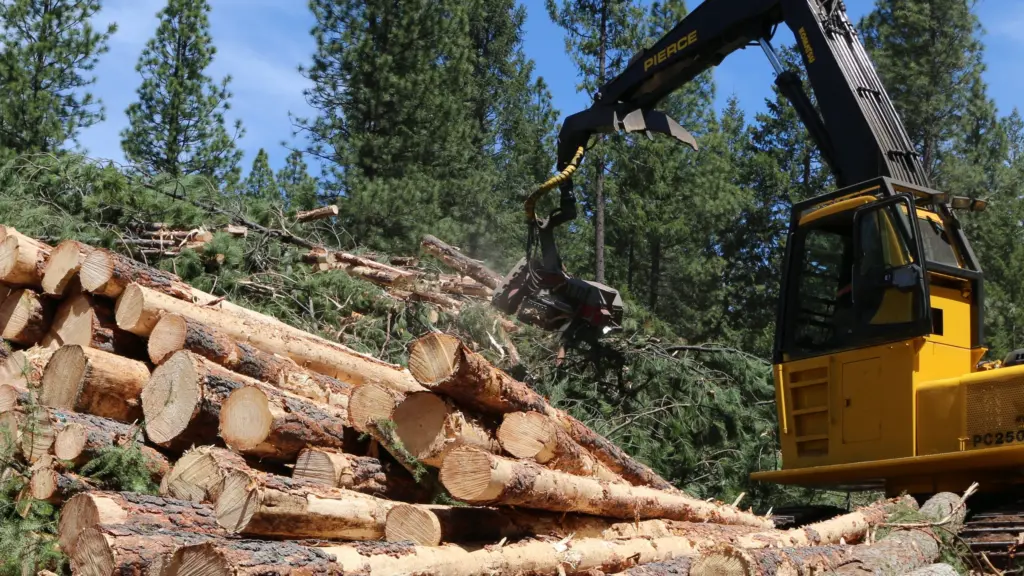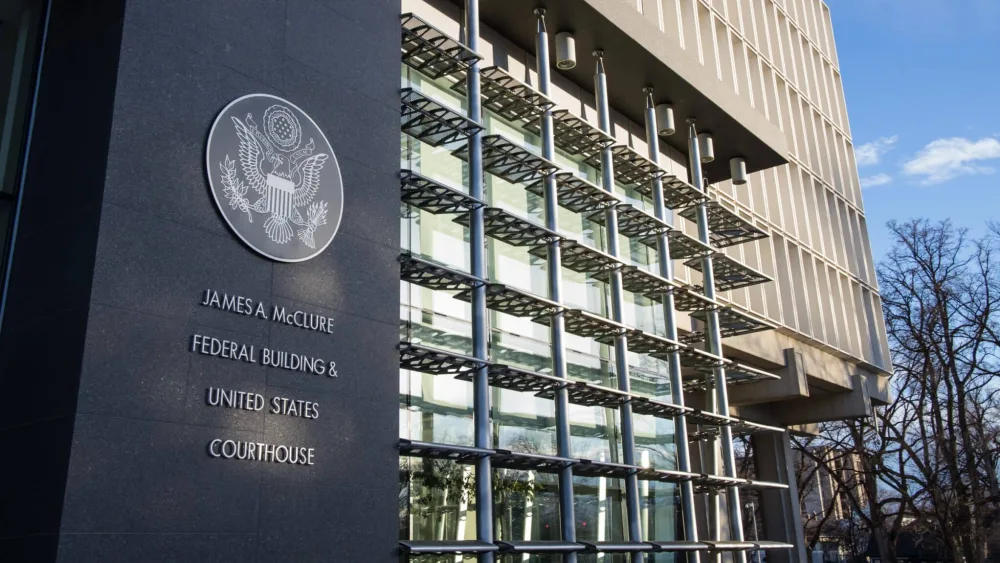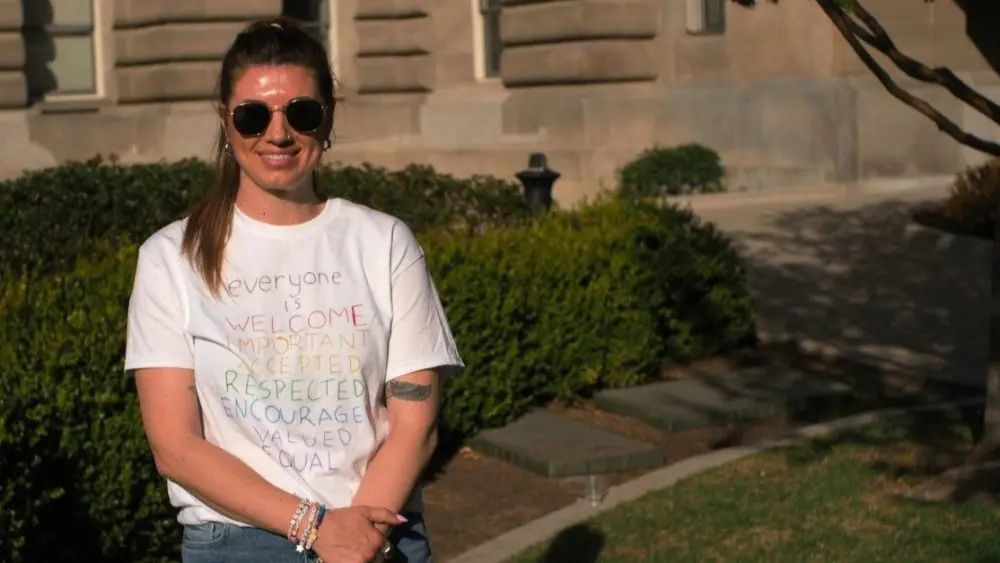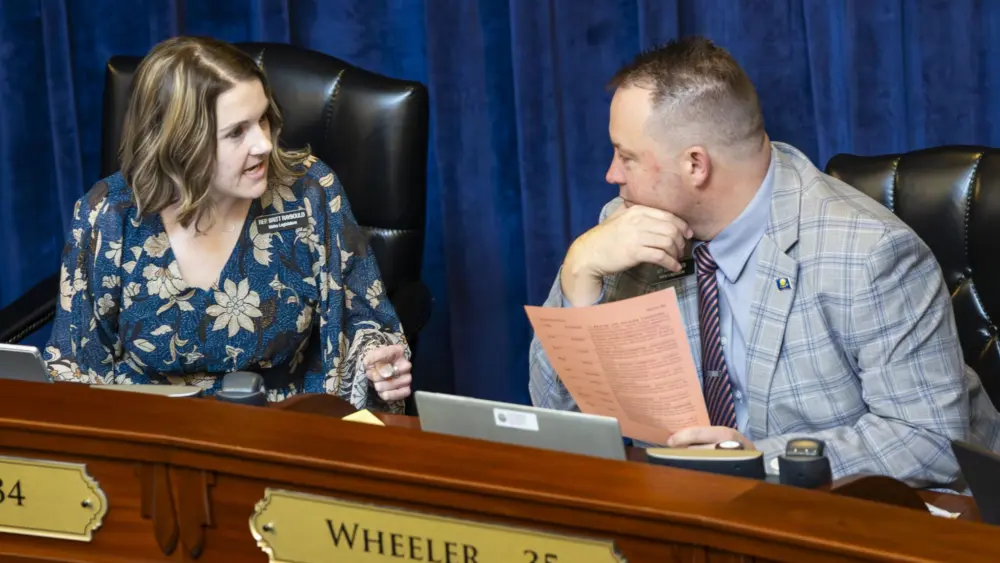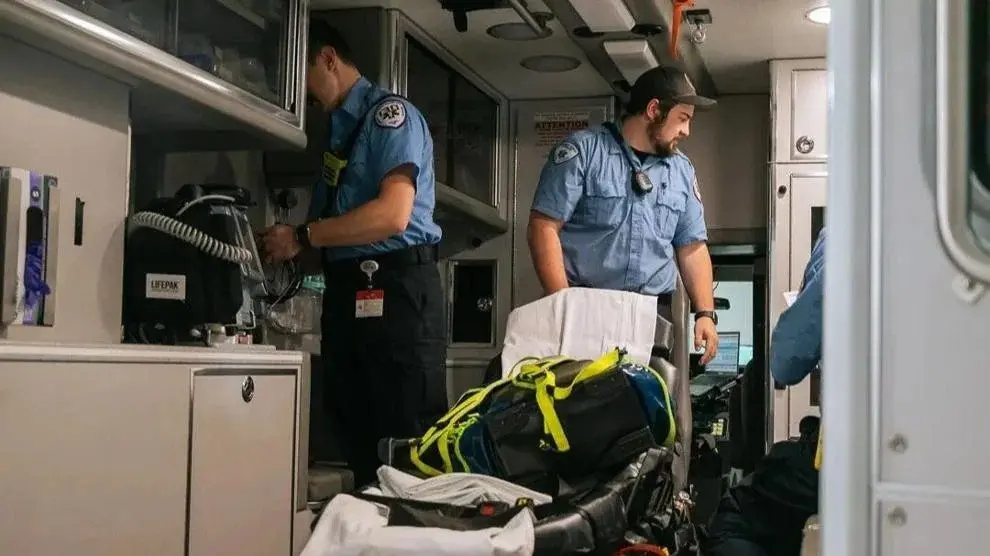STEVENSON, WA – Washington’s rural counties and school districts are preparing to start the school year without millions of dollars from a program meant to offset reduced revenue from logging on federal lands.
The Secure Rural Schools program expired at the end of 2023 after Congress failed to renew it.
Democratic and Republican lawmakers, along with local officials, are pushing U.S. House leadership to bring a bill renewing the program to the floor.
The lapsed program helps pay for roads and schools, providing $7 billion in payments to more than 700 counties and 4,400 school districts across 40 states since it was enacted in 2000.
“Families are already really feeling the pinch, and to just not know … where things are going to land, it’s very frustrating for me,” said U.S. Rep. Marie Gluesenkamp Perez, a Democrat, who represents parts of southwest Washington that rely on the funding.
Gluesenkamp Perez cosponsored a bipartisan bill with California, Colorado and Oregon representatives to renew the Secure Rural Schools program, but it has been stuck in a subcommittee since Feb. 23.
The Senate unanimously passed companion legislation on June 18, but that bill has been held in the House since June 23 without a hearing.
Counties and schools have received logging revenue from the federal government for roads and schools since 1906. Federal law currently mandates that all counties annually receive 25% of the seven-year average of revenue generated by that county’s forests.
The Secure Rural Schools program supplemented that funding with U.S. Treasury dollars due to declines in timber revenue.
But these payments have to be authorized by Congress, which did not happen when it came time to renew the program in 2023.
Historically, counties could elect to receive just their mandated share of timber revenue or a Secure Rural Schools payment. When Congress doesn’t reauthorize Secure Rural Schools funds, all payments revert to the default timber revenue amount.
All funds are split equally between the county government and all school districts within the county.
The difference between the timber revenue payments and Secure Rural Schools payments is striking, with the timber revenue payments checking in much lower. This is why all but 73 counties nationwide elected to receive Secure Rural Schools payments before the program expired at the end of 2023.
All counties defaulted to just timber revenue payments in 2024.
Those 2024 payments were issued in March, with many Washington counties receiving at least $1 million less than they did in 2023.
Skamania County, where Glueskenkamp Perez resides, saw one of the starkest losses, with a $2.3 million difference between the funding it received from Secure Rural Schools in 2023 and the standard timber revenue payment in 2024.
As a direct result of the funding loss, the county’s largest school district, Stevenson-Carson, has laid off over 20 staff members and closed one of its middle schools.
“Our students will have a very different year as they return in August. Gone are many staff members who made a difference in their lives,” Ingrid L. Colvard, superintendent of the Stevenson-Carson School District, said in a statement earlier this year. “Many of the resources that supported their achievement and wellbeing have been cut or greatly reduced.”
Lewis County, which is also part of Gluesenkamp Perez’s district, also saw funding drop.
The county received about $1.8 million total in Secure Rural Schools funding last year, with $700,000 of that going to the Lewis County government to maintain 1,200 miles of rural roads.
The county only got $276,153 this year to split between the county government and all school districts located there.
The funding decrease will lead to more delayed and canceled road repairs and maintenance, local officials have said.
“Rural counties like ours don’t ask for special treatment. We just ask for fairness — and for the tools to do the jobs of serving our communities. That’s why the Secure Rural Schools program is so important to Lewis County, and why Congress must act swiftly to reauthorize and fully fund it,” Lewis County Commissioners Scott Brummer, Lindsey Pollock and Sean Swope said in a July 16 letter to House leadership.
Gluesenkamp Perez has sent three different letters to House Speaker Mike Johnson urging him to move the bill forward. The most recent was sent on July 23 and had not received a response as of late last week.
The congresswoman said she and her colleagues in favor of the bill are pursuing “any avenue, any vehicle we can find to move forward with this.”
This story first appeared on Washington State Standard.

